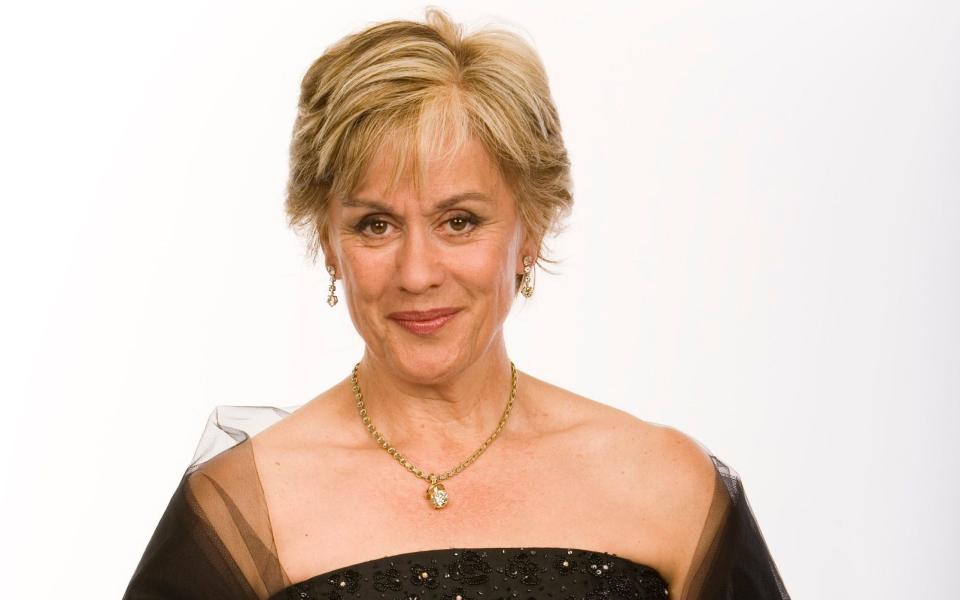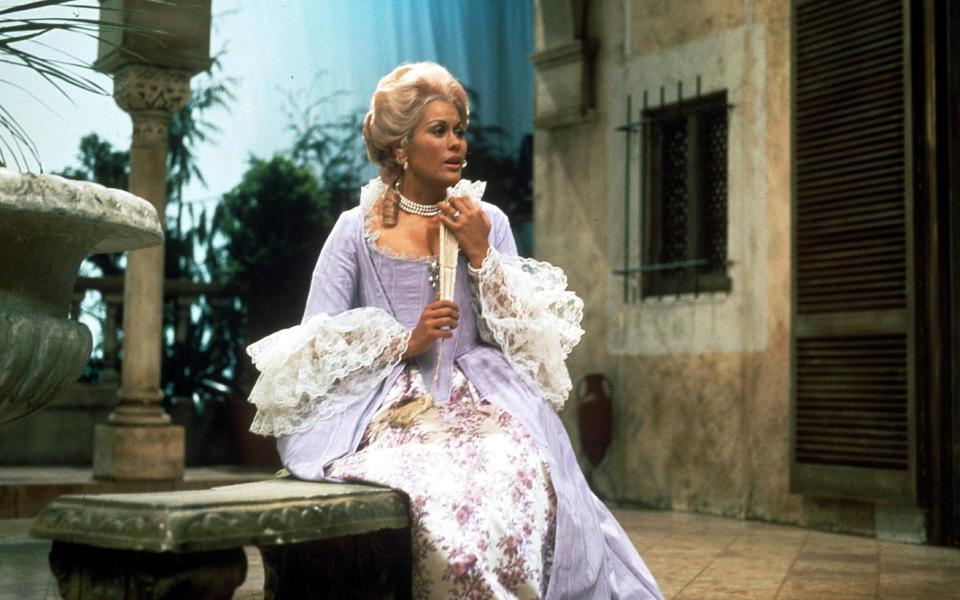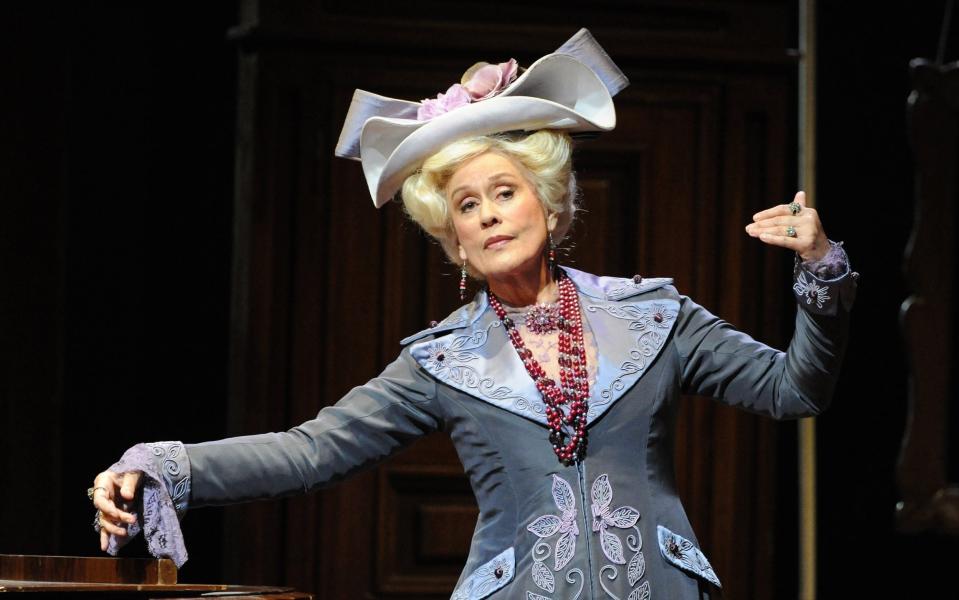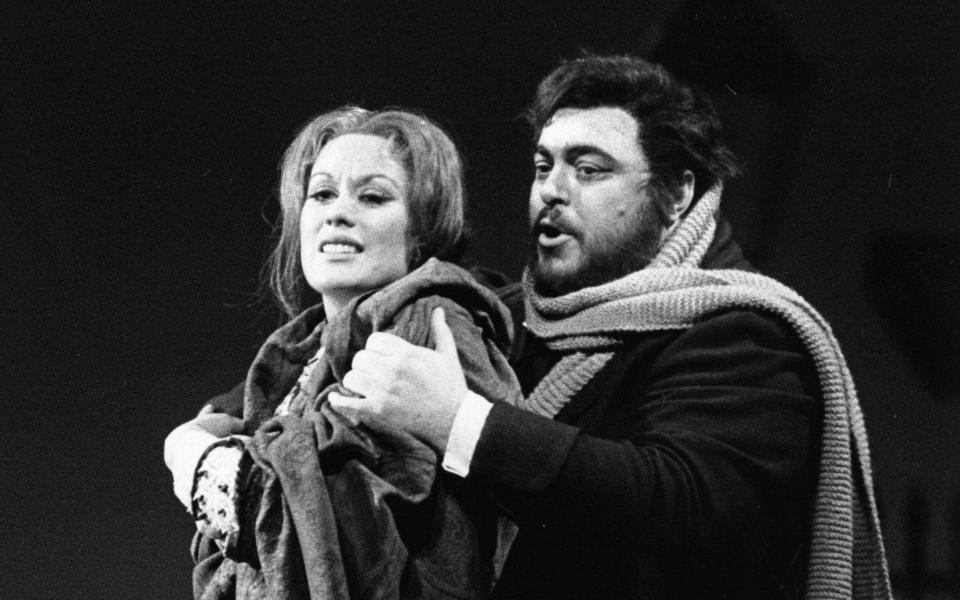‘I find socialising difficult, even now’: Kiri Te Kanawa

Dame Kiri Te Kanawa returns as a judge and mentor in the latest BBC Cardiff Singer of the World, its 20th edition in a star-studded 38 years. And the legendary lyric soprano, now 77, has been dispensing advice to the contestants…
“There’s no time to waste!” cries Dame Kiri, whose operatic career, excelling in Mozart, Verdi, Puccini, Strauss, has been supplemented by crossover glories, such as a Grammy Award-winning recording of West Side Story, a Top 10 hit celebrating the Rugby World Cup and, lest we forget, singing Handel at the wedding of Prince Charles and Lady Diana Spencer. She has been patron of the Cardiff bonanza since 2011 (also sitting on the jury), and she is aware that every day for a singer counts.
“I keep saying to them: now, what are you going to do, you just lost the whole day! And then you’ve lost the whole week! And then they’ve lost a whole month!” She knows the pandemic has been awful for them. “If I’d been in the middle of my career, I would have been devastated that it had been completely washed away.”
It’s 6am in New Zealand, but Dame Kiri is already up and at ’em, wearing a simple black polo-neck offset by a large diamond dragonfly brooch, with a Kandinsky-ish painting on the wall behind her. She left her home country for Britain in her 20s – after winning a singing competition, in fact – reaching stratospheric fame 50 years ago thanks to a superlative turn as the Countess Almaviva in The Marriage of Figaro, at Covent Garden in 1971; today she has homes in both places. This isn’t too early to talk, she promises: only yesterday she spoke to the singers themselves. “I say: just focus on what you have to do, and as if there’s a million people that are watching you.”
An audience with Dame Kiri requires a similar kind of focus: as she waits for each question and answers it prudently, conscientiously, my impression is of a tough, if ruminative, mother hen. After more than five decades of work, singing in every house of note and for pretty much every head of state, she revealed she had officially retired in 2017 (she’d made the decision, and the final showing, a year before), and since then she swears she hasn’t even trilled a bar. But she has remained busy, working closely with her foundation, or attending performances at “her” stage, the Kiri Te Kanawa Theatre in Auckland. Yes – what is it like having a theatre named after you?

“I’ll take it!” she beams. “As an absolute honour.” More to the point, does she have a favoured seat? “NOT the front row, for sure,” she chuckles. “The knees, the knees!” That barrier down at the front is no good for her. “Further back and on the aisle, just so I can stick a leg out,” she nods wisely. “I am getting a little old now for that sort of thing...”
Dame Kiri says her foundation’s work has been more essential than ever. “We’ve just been keeping singers alive, keeping them hopeful,” she says. “We’ve even got psychologists on board,” because “this one is going to be very, very difficult, I believe”. It seems she means both the competition and the crisis. There won’t be a live audience watching in Cardiff (“a real sadness”). Not that she is wholly alarmist: she raves about the singers, purring over her favourite so far – the Mongolian Ganbaatar Ariunbaatar, who caused a sensation in 2017. “His face was like a moon! And the voice was glorious!”
Well, quite. The Cardiff longlist boasts an admirable diversity – is it showing the rest of the classical world the way? “I see it only as the voice,” she insists. “It doesn’t matter which country they’re from.” She used to joke about the idea of singers coming “from Outer Mongolia” as if it were the farthest reaches of the earth. “Well, they’re there!”
Dame Kiri was born out of wedlock to a Maori father and Irish Catholic mother. When she was adopted, as a baby, by a local couple, Claire Rawstron became Kiri Te Kanawa. Her adoptive parents twigged her vocal talent early, and when she was 12 the family moved from Gisborne to Auckland so she could pursue her singing. I wonder if she felt any pressure to succeed (she has previously described her mum as a “tiger mother”). Not too much, she says, but there were sacrifices. She recalls a “nanny” of sorts, her “Uncle Dan” (not actually an uncle). After they left, she only saw him once ever again.
“It was a tragedy he wouldn’t come with us,” she sighs now. “There were tears at the gate.” Then, when the family got to Auckland, “it was just a struggle, struggle, struggle”. “I look back and think: well, I suppose it was all worth it. They gave me an amazing life.”
Te Kanawa had some success as a singer in New Zealand in her early 20s but, she says, “I wasn’t driven until I got to England, and then I suddenly saw there was a massive amount of competition … I thought I had better really tighten up my game and get on with it.” She studied in the mid-1960s at the London Opera Centre, which was out east, but her main memories are of Carnaby Street – although it doesn’t sound as if her Sixties swung vigorously.
“They’d say in the room: ‘there’s going to be a “happening”.’ Well, of course, there’s a happening because you’re there, you stupid person!”
Instead, she worked – very hard. She had amazing teachers but gave as good as she got; another bit of advice she gives young singers is not to be afraid of switching teachers (“they don’t want to hurt the [old] teacher, but I say, hang on, you’re paying the person!”).
Directors and conductors, too, were a bracing influence – “[people] who pushed me further than I thought I could go”. Sir Georg Solti was, for instance, “very, very forceful.” Does she mean bossy? “No. Forceful!” Did she always have the confidence to hold her own? “Well, I think so. But I don’t want to say that I was pushing them around. They pushed me around, but I knew that the energy that they had was some of the energy that I wanted.”

She was rigorous in her pursuit of perfection – a perfection she feels she never achieved, always saying instead, “next time will be better” – and everything else came second. “Socialising was really not one of the things I did, because it blew everything out, you know? And even now, I find it difficult, socialising. You always sort of fear …” She trails off. The conditioning to protect herself – her voice – is too strong. “You’re always sort of backing off from people. You always think: when can I leave?”
Dame Kiri shows zero regrets about retiring. “It was a constant 50 years of non-stop travel, of suitcases,” she says. “In some ways, I don’t ever want to get on a plane again.” And what with “the Covid,” she says, “it fills me with fear now.” Ah yes, the dreaded C-word. She has had one jab, but still sounds a bit nervous. “I see that Andrew Lloyd Webber has been really pushing to get everything opened up – but ... I’d be quite frightened to go into those really tight little theatres with few people.”
In terms of Covid and New Zealand, Dame Kiri thinks prime minister Jacinda Ardern has done a good job. “An awful lot of very good lady leaders, don’t you think?” she smiles. “I think in lots of ways they have empathy towards what people would like, whereas sometimes, a man will look at it straightforwardly and say: well, we’ll do this, and it’s a bit one-size-fits-all. Sometimes I feel it with a man’s decision, because he has to be a leader … whereas a woman sort of takes on a more motherly type of attitude.”

It would be nice to have more women in those positions in opera, too, she agrees. “But they have to be good as well. And I think there are a lot of very good men ... I don’t know any lady leaders at the moment that would …” she tails off. “It’s a big job. Who wants to do it night after night? And sometimes women have got husbands, children, whereas men – if they’ve got that, too, husbands or children or wives or whatever, they can very easily leave it behind and go do their job. Whereas a woman doesn’t – she’s always pulled back. Always.” A woman still has to do everything? “Yeah, yeah ... I know that,” she says, eyes wide. “Let’s NOT go there!”
In past interviews, Dame Kiri has alluded to something similar: that, married from 1967 to 1997 to the New Zealand mining engineer who became her manager, Desmond Park, with whom she adopted two children in the 1970s, she felt compelled to try to juggle work and family life. Today, she says she is happy to be back in New Zealand to be with her three-year-old grandson, Luther, whom she hadn’t seen for a year and a half. She is fond of his name, since she’s a fan of Luther Vandross, whose music she finds “very sensual”. “I play him in the car all the time.” She plays a lot of music at the wheel, “but if I want to stay alive, I play ABBA. I get too dreamy when I listen to classical!”
Asked which composer she keeps returning to, she cites Elgar. Why? “It brings back memories of England – it’s just something about England and Glyndebourne and the Sussex Downs … everything that’s English, that’s precious.” Her English home is in the Sussex Downs – which she knows she must return to eventually.
“The biggest plan is to come back for the 40th anniversary [of Cardiff] in two years,” she says. “I will be back.”
BBC Cardiff Singer of the World is on BBC Four, Radio 3, and BBC Two Wales from Sunday until Jun 19

